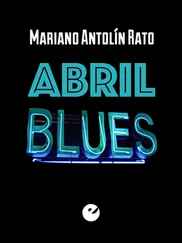‘We heard that there was a demonstration,’ said Nadir, ‘and students began to trickle out from the College of Engineering, individually and in groups, heading for the main campus. Nadeem said he was going to join in. I said that security forces would crack down on the demonstration and we’d get nothing out of it but abuse. He left me and went out of the building, while I went to my lecture. I couldn’t concentrate on what the teacher was saying, so I asked to be excused and went out to catch up with Nadeem.’
Hamdiya interrupted him. ‘Nadeem, what were you doing putting yourself and your brother at risk?’
Laughing and flexing his arms to show his muscles like Popeye, Nadir continued, ‘As his older brother, I wanted to protect him! The truth is, I didn’t set out to participate — I meant just to look for him, but I found myself in the middle of the demonstration. I went out through the gate of the college and saw hundreds of security men with their helmets and protective gear, forming a wall to close off the passage between the university and the road leading to the Egypt Awakening statue and the Israeli embassy. I saw demonstrators surrounding the monument outside the campus, and others — a great many more demonstrators — behind the gate, which was closed. I walked toward the College of Applied Arts, so as to go back in by one of the side gates, but I found all the gates locked, and security forces surrounding the whole university. I began retracing my steps parallel to the wall, but before turning right into University Street, I decided I would jump over the wall on to the campus. I looked to my left to make sure there were no officers, and then I climbed the wall. One of the soldiers from central security saw me — a dark-skinned little chap — and he shouted at me, “That’s forbidden, Effendi!”
‘I smiled at him and said, “I have lectures to attend — have a good day!” And I leapt over the top, fast.
‘I started looking for Nadeem among the students milling around behind the fence. The ones who were closest to the gate were trying to open it. I saw a female student climb the gate, holding on to the bars with both hands and chanting in a loud voice, while the other kids answered the chant. Then new chants rose up behind us, when a crowd from inside the campus — maybe they’d been making the rounds of the colleges — turned up and joined the students who were massing at the gate.
‘The area extending inward, from the gate to the Central Celebration Hall, and lengthwise, from the College of Humanities to the Law School, was packed with demonstrators. I was searching all over for Nadeem, when the police started firing canisters of tear gas, and I found myself running with others who were fleeing. I didn’t see when the students succeeded in opening the gate, or how I got to the university dormitories across the street, or how I came to be holding stones and lobbing them at the soldiers, who were pursuing us with truncheons, even though we were choking on the tear gas they had fired at us. I called out “Palestine for Arabs!” and ran; I said, “Call off the government dogs!” and threw stones; I said, “You sons of bitches!” and started to cough.’
Nadir was laughing; so was Nadeem. I was laughing (and laughter released the tears I’d been holding in ever since Nadir had begun to talk).
Nadeem spoke up. ‘Nadir was under attack in University City, and I was under attack over by the Egypt Awakening statue.’
‘No,’ Nadir interrupted him, ‘you’ve got that wrong, Nadeem, sir! I was under attack, but I was fighting back. I was at the head of the most powerful fighting force in the Middle East!’
Hamdiya didn’t laugh. Her face was pale and drawn, with a faint, bluish tinge.
It was the predicament of a mother sharing the responsibilities of motherhood. I disagreed with Hamdiya, but the split that would drive her to move out and go to live with her sister was still to come.
At the outset, I didn’t notice whether I was optimistic or pessimistic. When I heard that crow rasping in the street leading to the university, I didn’t think anything, except that it was a crow. Its croak was a signal that drew my gaze upward, where I saw it sitting on a branch of one of the acacia trees lining the pavement alongside Orman Garden. Then the crow spread its wings and flew off across the street, toward the buildings of the College of Engineering, to my left. I continued on my way to the university. When my father died a few days later, I remembered the crow, and decided that it had been a sign.
‘I don’t believe it!’
‘Believe it or don’t believe it.’
‘But how? Explain to me!’
‘I take some things as good omens and others as evil omens; every morning I like to take a quick look at “Your fortune today” in the newspaper. I don’t spend long on it, but if what it says is disturbing then I may be a bit bothered by anxiety — just a touch — until the day concludes without mishap. Anyway, we all have our quirks!’
‘I’ve known you more than twenty-five years, and it’s the first I’ve heard of this!’
‘There was no occasion to tell you. And maybe I don’t take things seriously except when I see a sign that’s followed by misfortune.’
‘And maybe — quite frankly, my dear Madame Nada, you’re an idiot, and too embarrassed to admit that you’re an idiot!’
‘And maybe — quite frankly, my lord Hazem, sir — you take it for granted that everyone functions the same way, like the trains on the rails, so you think classification is easy: dividing people into columns, putting them on shelves and in drawers, with an original and back-up copies, and all of it identically formatted!’
He got angry, so I let him off the hook. ‘I’m joking with you,’ I told him. ‘Weren’t you joking with me, or do you actually think I’m an idiot?’
I had offered this unwarranted description of him to tease him, but I had also deceived him when I said I didn’t take things seriously unless I saw a sign that was followed by misfortune. The truth was that I was always sensing ill omens. Even with things that called for rejoicing, I was fearful and driven to forebodings: that something would arise to disable or destroy or cancel whatever good thing had happened. After Arwa killed herself, I took to making daily telephone calls to a number of my friends, to see that they were all right, or ask after their close friends:
‘How is so-and-so?’
‘Fine.’
‘Have you seen him recently?’
‘Just yesterday.’
‘Was he in good health?’
They made fun of me.
Or I would drop in suddenly on a friend I hadn’t seen in years. I would knock on the door, and he or she would open up and cry, ‘Nada!’
‘I came to see if you were all right,’ I would say. Hazem announced that Nada had become mother to the Egyptians, that she had decided to extend her authority in the care of her brothers to the generation as a whole!
I rang Hazem on the morning of the last day of December. ‘Tomorrow,’ I said, ‘is the start of a new millennium. Let’s spend New Year’s Eve together. Who do you suggest should join us?’
‘I’m not going out,’ he replied.
I tried to entice him with food. ‘I’ll create a wonderful dish for you.’
But he wasn’t interested. I didn’t sense anything amiss, nor did it seem to me that there was anything worrisome in his voice. I stayed home as well. At midnight, when the new year began, I told Hamdiya good night. ‘Don’t stay up waiting for the boys as you usually do,’ I said. ‘They won’t be home before morning.’ And with that I went to bed.
When I learned of his death, I said, ‘Oh, my God. Where am I to go now?’ I put on mourning clothes and went to his house. I didn’t say, nor did his mother, his brothers, or any of our comrades who had assembled at the house before the funeral, that he was a father and a companion to us, a fact which we all acknowledged yet kept to ourselves. For what was the use of saying it — what would be the point?
Читать дальше











